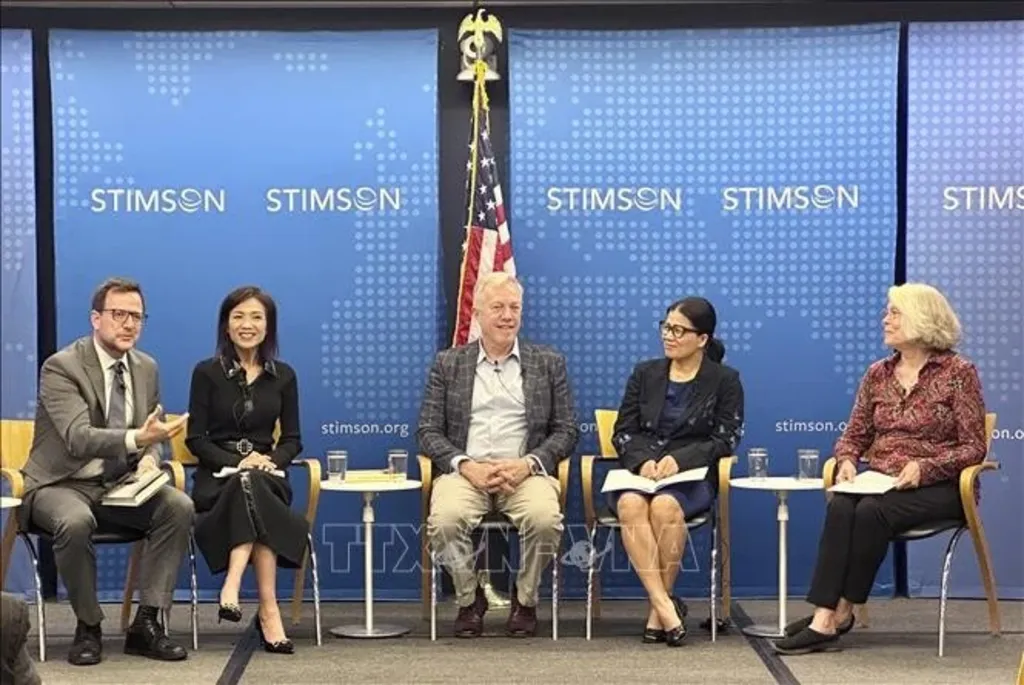 |
| Speakers at the Stimson Centre event__Photo: VNA |
The Stimson Centre, a Washington D.C.-based independent think tank on international security and shared prosperity, has held a hybrid event commemorating 50 years of peace and reconciliation and 30 years of official relations between Vietnam and the US.
In her opening remarks, Rachel Stohl, Senior Vice President of Research Programs at the center, said that 2025 is truly an important year for the bilateral relationship as the two countries celebrate 50 years of peace and reconciliation. This year also marks 30 years of normalization of Vietnam-US relations.
According to Stohl, the origin and progress of this bilateral relationship are even more remarkable when considering that the two countries have gone from former foes to comprehensive strategic partners, and are working together for peace and for the benefit of their peoples.
Vietnamese Ambassador to the US Nguyen Quoc Dung shared the driving forces that have brought the two countries from former foes to partners, friends and now comprehensive strategic partners, as well as the core values that have supported this journey and future directions.
 |
| Vietnamese Ambassador to the US Nguyen Quoc Dung__Photo: VNA |
The diplomat stressed that the two countries have reached an important milestone: not only reflecting on the path they have traveled together, but also discussing how this momentum can be built on to bring lasting benefits to both peoples in the decades to come.
He expressed his belief that the bilateral relationship continues to develop based on the core values that their people share, namely the value of conscience, the aspiration for peace, and the determination and commitment to promoting national interests, as well as bringing tangible benefits to them.
At the panels, those who have devoted their lives and careers to peace and reconciliation shared insights into the process.
Many speakers are still actively involved in strengthening bilateral relations and promoting the settlement of war legacy issues such as Agent Orange (AO)/dioxin, unexploded bombs and mines, and support for people with disabilities affected by the war.
Former US Ambassador to Vietnam Ted Osius, who is currently President of the US-ASEAN Business Council, stated that reconciliation isn't easy, as “it takes a lot of work. It's painful. The emotions are really, really strong on both sides. But sometimes if you can get to the little practical matters such as ditches and tree roots instead of flags and symbols and all of that, then reconciliation is possible”.
He assessed that Vietnam is now one of the fastest growing countries on the planet, and is moving up the value chain from being lower middle income country to an upper middle income country.
Touching upon war consequence settlement, Brian Eyler, Senior Fellow, Director of the center’s Southeast Asia Program, said there's so much more that needs to be done in terms of cleaning up dioxin, Agent Orange, as well as finding and clearing unexploded ordinance.
“Trade and investment, obviously, this is something that's moving very strongly. Hopefully the Trump administration can relax some of these tariffs and some deals can be struck, because I know that Americans and Vietnamese love to work together and do business with each other,” added the expert.- (VNA/VLLF)









